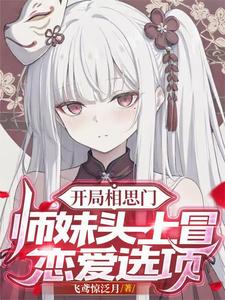Taiping Market attracted a large number of merchants to Liangzhou and Jizhou, as the low commercial taxes and free trade policies were enough to win their favor.
When they first laid eyes on the smooth cement roads, these merchants were puzzled—could the Taiping Army really be so wealthy? They were willing to pave entire roads with such material?
Local merchants, brimming with pride, informed them that not only was this area covered, but nearly all of Liangzhou had already completed the construction of cement roads! Their curiosity piqued, the traveling merchants obtained passes from the Taiping Army at the checkpoint after leaving Taiping Market and set off for Liangzhou in their carriages.
The further they traveled, the more astonished they became. Every major route was paved with cement, and the roads were remarkably safe—even near dense forests, there were no bandits lying in ambush! Outside these territories, a single merchant convoy would typically encounter two or three groups of bandits on a single trip.
These merchants ventured deep into every corner of Liangzhou, where the locals, while marveling at the foresight of the Great Heavenly Master, presented their carefully prepared regional specialties, leaving the merchants stunned once again.
This was how Liangzhou's economy flourished.
Merchants paid their taxes, brought in goods from outside, and left with sugar, refined salt, and local products in tow.
Meanwhile, the tax exemption policy began to take effect, drawing waves of refugees to Liangzhou and Jizhou. Since Jizhou also needed road repairs and the reconstruction of irrigation systems, these refugees quickly found work.
The Taiping Path thrived, but neighboring Yongzhou found itself in a bind. Attacking the Taiping Path was out of the question, yet other warlords eyed Yongzhou covetously, knowing that any invasion of Liangzhou or Jizhou would require passing through it.
Sure enough, someone couldn’t resist. They sent envoys to Yongzhou to pick a fight and then declared war.
Chu Chaofeng was no pushover—far from it. He was a formidable general, and in battles against Youzhou, Yongzhou not only held its ground but even gained the upper hand.
This prompted Prince Xiang of Xuzhou to ally with Youzhou, vowing to conquer Yongzhou.
Fate, however, had a twist in store. To avoid provoking Prince Xiang, Chu Chaofeng had already married his daughter to him.
While they were locked in conflict, Fang Zhiyi had already overseen the completion of a third iron mine, with none other than the former overseer, now promoted to Prince Wu, in charge.
Fang Zhiyi hadn’t expected Prince Wu to be such a capable administrator. While he might not excel in warfare, his management skills surpassed many.
The Industrial Division also made a breakthrough, crafting matchlock guns using molded designs—essentially miniature cannons that required only two men: one to aim and carry, the other to load gunpowder and ignite the fuse.
On the day of the demonstration, Fang Zhiyi invited Prince Wu—now called Wu Yuan—to witness the display.
As the soldiers shouldered the matchlock guns and fired, Wu Yuan’s eyes welled with tears. He turned and punched Wang Erxi a few times, leaving the latter rubbing his shoulder in confusion over this sudden outburst.
Fang Zhiyi, however, remained unhurried. He focused on filling the Taiping Granary, refining incomplete laws, and completing unfinished roads. By the time he finished, intelligence from his external networks reported that Chu Chaofeng had fallen.
His daughter, returning home for a visit, had captured him, and the banners on the city walls were replaced with Prince Xiang’s insignia.
Yet other cities refused to surrender, attempting instead to rescue Chu Chaofeng. Meanwhile, Youzhou launched a full-scale assault on Yongzhou’s territories.
Fang Zhiyi knew it was time to seize the opportunity. Without sending envoys, he dispatched a merchant convoy to Yongzhou, then declared them missing and mobilized his troops.
This marked the first time regions outside Liangzhou and Jizhou witnessed the Taiping Army in action.
And this single display was enough to shatter their perceptions.
At the first clash, the city walls vanished. Cavalry charging forward? Gone before they could even begin. Even those who closed in were met with a row of raised "sticks," and the remaining horsemen were wiped out.
As Fang Zhiyi put it, he had maximized technological advancement, and under such overwhelming superiority, no one stood a chance.
Indeed, Yongzhou’s cities fell one after another. While Youzhou was still besieging its first target, the Taiping Army had already swept through, grumbling about the poor road conditions along the way.
Youzhou’s forces experienced the same crushing defeat and fled in panic.
Yongzhou was now entirely under the Taiping Path’s control. While Chu Zhaoning somehow escaped, Chu Chaofeng was brought back to Liangzhou.
Throughout the journey, Chu Chaofeng’s jaw remained agape. He had assumed the merchants were paid by the Taiping Path to exaggerate their claims, but seeing it firsthand left him utterly stunned.
Fang Zhiyi didn’t trouble him, simply advising him to find suitable work before moving on. After all, though Chu Chaofeng had grown inept in his later years, he had never wronged Fang Zhiyi’s predecessor.
Seeing Chu Chaofeng’s bewilderment, Wu Yuan couldn’t help but laugh. With a few words, he convinced him to join him at the iron mines.
Witnessing the Taiping Path’s territories—where people lived in peace, well-clothed and well-fed—Chu Chaofeng felt the weight of his own ignorance for the first time.
Wu Yuan smirked. "You’ve only seen the good side?"
"What do you mean?" Chu Chaofeng asked, puzzled.
Wu Yuan led him through the mountains to a clearing, where rows of wooden stakes stood, each impaling a corpse. Some were skeletal, others freshly decaying. Chu Chaofeng’s heart pounded. "The Taiping Path is too..." Though he had blood on his own hands, he would never desecrate the dead like this.
"Not so," Wu Yuan shook his head. "These people deserved it."
"Oh?"
"When people have food and clothing, some still scheme against others. These were the ones who preyed on the common folk." Wu Yuan sighed. "This is also a famous landmark in the Taiping Path—the first stop for all newly appointed officials during their orientation."
Chu Chaofeng drew a sharp breath.
The terror of the Taiping Army spread once more, silencing any restless warlords. Spies infiltrated Taiping territories to investigate, but the findings were dismissed as impossible. How could such fine roads be built for "lowly" commoners? No bandits at all? Nonsense! And women serving as officials? Fang Zhiyi must truly be a heretic!
Despite the insults, no one dared provoke the Taiping Path again.
The only one with ambitions, Prince Xiang, plotted to strike from within. Inspired by his wife, he planned to disguise his men as merchants, infiltrate, and breach the Taiping Path’s defenses.
As he thought of Taiping’s specialties—sugar, refined salt, and the recently coveted glassware adored by nobles—Prince Xiang’s eyes gleamed with greed.

esick Sect? Well, at least it's considered a respectable orthodox sect. Wait a minute— What kind of vibe are you all giving off? Shouldn’t this be a love-struck, romance-obsessed sect? Why does everyone here sound more like demonic cultivators? "Master, today he’s getting married. This disciple wishes to descend the mountain and crash the wedding, then toy with him to death right in front of his wife..." "Elder, I only got into your sect through connections, so why won’t you teach me anything?" "Because I also became an elder through connections." Thankfully, Su Ji was just an outer sect labor disciple. Surely, nothing too crazy would— "Junior Brother, you’ve broken through to Qi Refining. Once you sever your useless spiritual root, you can officially become an outer sect disciple." "The Great Dao is merciless. Don’t let a worthless spiritual root waste your essence and spirit, hindering your cultivation." Is this really the Lovesick Sect? ... Three years later, Su Ji sat in the seat of the Lovesick Sect’s sect master, sighing with emotion. His rise to this position all started when his junior sister adamantly insisted on preserving his "spiritual root." "Mmm... Senior Brother, what’s our relationship now?" "Stop talking. Keep going." "By the way, that newly promoted top-tier sect—didn’t they come to buy our Love Beans?" "One top-grade spirit stone per Love Bean—is that really so expensive?" "I suspect they’ve eaten too many Love Beans." "Now they’re lovesick." Well, this really is the Lovesick Sect after all.

u Chenyuan transmigrated into a female-oriented novel about a real and fake heiress, becoming the CEO elder brother of both. Unfortunately, the entire Lu family—including himself, the CEO—were mere cannon fodder in the story. Determined to save himself, Lu Chenyuan took action. The spoiled, attention-seeking fake heiress? Thrown into the harsh realities of the working class to learn humility. The love-struck real heiress? Pushed toward academic excellence, so lofty goals would blind her to trivial romances. As for the betrayed, vengeful arranged marriage wife… the plot hadn’t even begun yet. There was still time—if he couldn’t handle her, he could at least avoid her. "CEO Lu, are you avoiding me?" Mo Qingli fixed her gaze on Lu Chenyuan. For the first time, the shrewd and calculating Lu Chenyuan felt a flicker of unease.

or! A blessing for those who struggle with love, a guidebook for dating novices. Quickly match with your dream goddess! Complete walkthroughs earn rewards, and perfect walkthroughs unlock limited achievements!】 Shen Yi, an ordinary office worker, accidentally downloads a mini-game called Dating Simulator. The mini-game is simple: randomly search for dating targets, simulate dates, and receive rewards upon successful confession. Rewards include but are not limited to money, attributes, and skills. The higher the evaluation, the better the rewards, with perfect ratings unlocking mysterious achievements. Shen Yi plans to use this mysterious mini-game to continuously pursue targets and improve himself, making his life better and better. ...... However, after several successful walkthroughs, Shen Yi suddenly notices something strange - the targets he previously simulated dating seem to be searching for him in real life?

reezy rom-com) Good news: Jiang Liu is quite the ladies' man. Bad news: He’s lost his memory. Lying in a hospital bed, Jiang Liu listens to a parade of goddesses spouting "absurd claims," feeling like the world is one giant game of Werewolf. "Jiang Liu, I’m your first love." "Jiang Liu, you’re my boyfriend—she’s your ex." "Jiang Liu, we’re close friends who’ve shared a bed, remember?" "Jiang Liu, I want to have your baby." The now-lucid Jiang Liu is convinced this must be some elaborate scam... until someone drops the bombshell: "The day before you lost your memory, you confessed your feelings—and got into a relationship." Jiang Liu is utterly baffled. So... who the hell is his actual girlfriend?! ... Before recovering his memories, Jiang Liu must navigate this minefield of lies and sincerity, fighting to protect himself from these women’s schemes. But things spiral even further out of control as more people show up at his doorstep—each with increasingly unhinged antics. On the bright side, the memories he lost due to overwhelming trauma seem to be resurfacing. Great news, right? So why are they all panicking now?